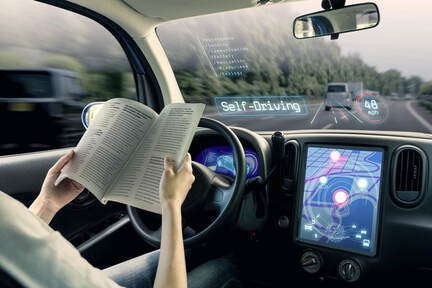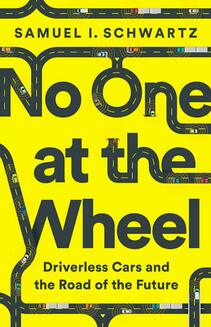|
Image: Ericsson They’re coming! They’re coming! Like a something out of a sci-fi movie, there’s been much talk of “they” and their impending takeover of Western civilization. Who are “they?” Martians? Giant robots? Hepcats in retro space suits? No, driverless cars. As a Metro Detroit native – AKA “The Motor City” – and someone who’s worked in the automotive industry, I’m intrigued by the idea of the driverless car, also referred to as the “self-driving car,” “autonomous vehicle,” or simply “AV.” What exactly will this new age entail? That was the question Terry Gross, host of NPR’s “Fresh Air,” put to Samuel Schwartz during a recent installment. Schwartz is the author of “No One At The Wheel: Driverless Cars And The Road Of The Future.” He served as the traffic commissioner of New York City and chief engineer of the city’s department of transportation. He’s also the one who popularized the term “gridlock.” Schwartz expects it to be a disruptive technology. There will be, for example, fewer repair shops because autonomous vehicles will likely be fleet operations rather than privately owned. Also, the insurance industry will be impacted since we’ll have fewer crashes – about a third of their business is based on accidents. And, fewer fender benders mean fewer court cases and, therefore, fewer burdens on the court system. Driverless cars could also change infrastructure. Currently, traffic lanes are extra wide in order to accommodate people’s imprecise driving. An autonomous vehicle, however, would be more exact in its piloting. Lanes could be narrower, and that extra roadway could be put to other uses.
Growing up in Southeast Michigan, driving was a right of passage. I took driver’s ed at 15, and I received my license on my 16th birthday. I’ve constantly been behind the wheel in the time since, and I’ve grown comfortable with the practice. I even feel some of my identity is tied to driving and car ownership. I’ve been told, for example, that my choice of a four-door sedan indicates that I’m a “sensible” person. (It’s true – I am fairly sensible.)
It’s odd to think there’s a possibility that future generations will never know what it is to drive – although we’re already headed in that direction. Schwartz notes that Millennials, those born between 1981 and 1996, are less likely to own a car or even drive than previous generations. Many view it as old-fashioned and an unwanted lifestyle. In fact, there’s been a 20 percent drop in driving between they and their parents. This figure, he notes, is an “earthquake” by transportation industry standards. This decline can be attributed to various factors, including the cost to own and maintain a vehicle, as well as the availability of ride share services like Uber and Lyft. The case of Millennials giving up private car ownership and the rest has been played out with my brother, a member of this demographic. Like me, he grew up in the shadow of the American auto industry, got his license as soon as he was able, and drove for many years. So, I was surprised when he recently sold his car. He, too, cited the cost and the availability of other means to get around – walking, friends, ride sharing, public transportation, etc. Whereas I feel some need to have a vehicle at my disposal, he has a different view. There’s a certain generation gap, I suppose. CB Insights reports some 46 corporations are now working on AVs. This includes the several auto manufacturers (Ford, GM, Chrysler), as well as numerous tech companies (Google, Amazon, Apple). Despite this push to be the first to market, Schwartz estimates driverless cars many not be seen en masse until the second half of the century. That’s another 30 years down the road – pun intended. So, if “they” are coming, we have some time to prepare.
0 Comments
Your comment will be posted after it is approved.
Leave a Reply. |
AuthorI'm Eli Natinsky and I'm a communication specialist. This blog explores my work and professional interests. I also delve into other topics, including media, marketing, pop culture, and technology. Archives
July 2024
Categories |


 RSS Feed
RSS Feed